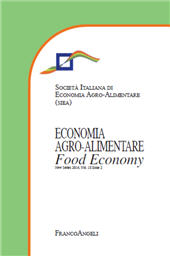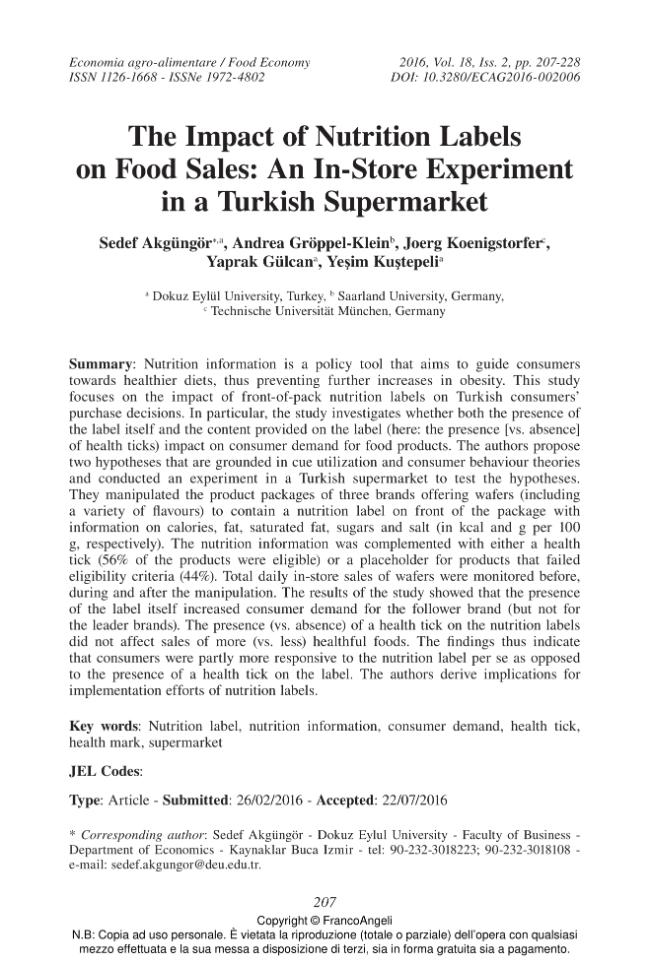The impact of nutrition labels on food sales : an in-store experiment in a Turkish supermarket
207-228 p.
Nutrition information is a policy tool that aims to guide consumers towards healthier diets, thus preventing further increases in obesity. This study focuses on the impact of front-of-pack nutrition labels on Turkish consumers' purchase decisions. In particular, the study investigates whether both the presence of the label itself and the content provided on the label (here: the presence [vs. absence] of health ticks) impact on consumer demand for food products. The authors propose two hypotheses that are grounded in cue utilization and consumer behaviour theories and conducted an experiment in a Turkish supermarket to test the hypotheses. They manipulated the product packages of three brands offering wafers (including a variety of flavours) to contain a nutrition label on front of the package with information on calories, fat, saturated fat, sugars and salt (in kcal and g per 100 g, respectively). The nutrition information was complemented with either a health tick (56% of the products were eligible) or a pla
ceholder for products that failed eligibility criteria (44%). Total daily in-store sales of wafers were monitored before, during and after the manipulation. The results of the study showed that the presence of the label itself increased consumer demand for the follower brand (but not for the leader brands). The presence (vs. absence) of a health tick on the nutrition labels did not affect sales of more (vs. less) healthful foods. The findings thus indicate that consumers were partly more responsive to the nutrition label per se as opposed to the presence of a health tick on the label. The authors derive implications for implementation efforts of nutrition labels. [Publisher's Text].
Is part of
Economia agro-alimentare : XVIII, 2, 2016-
Articles from the same issue (available individually)
-
Information
ISSN: 1972-4802
DISCIPLINES
KEYWORDS
- Nutrition label, nutrition information, consumer demand, health tick, health mark, supermarket



